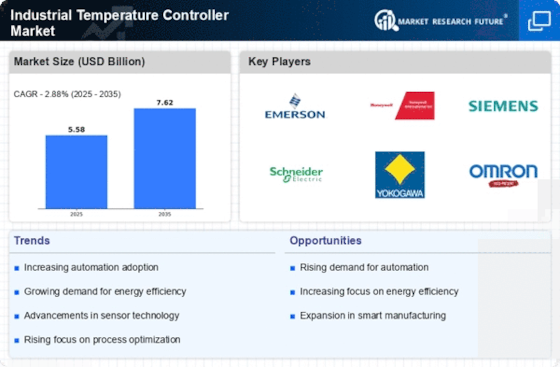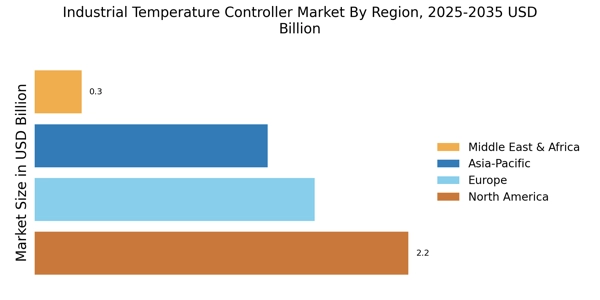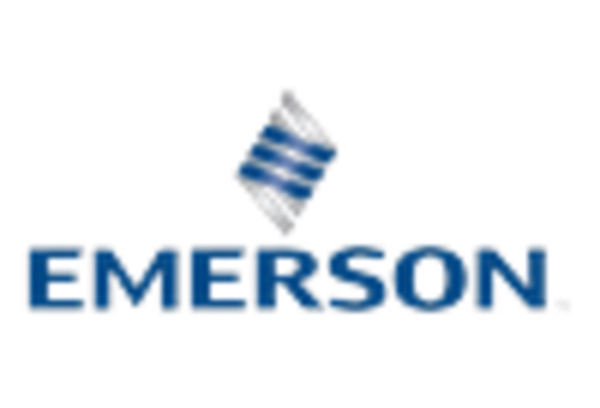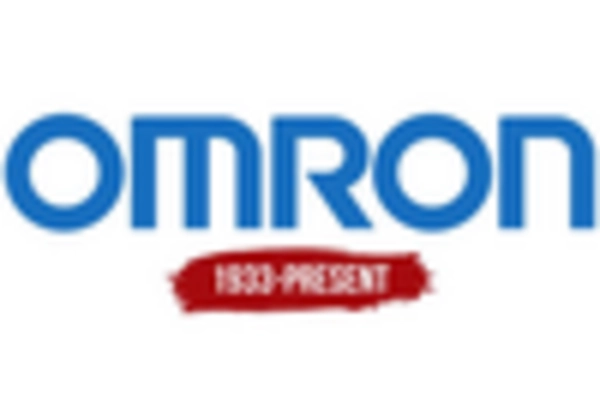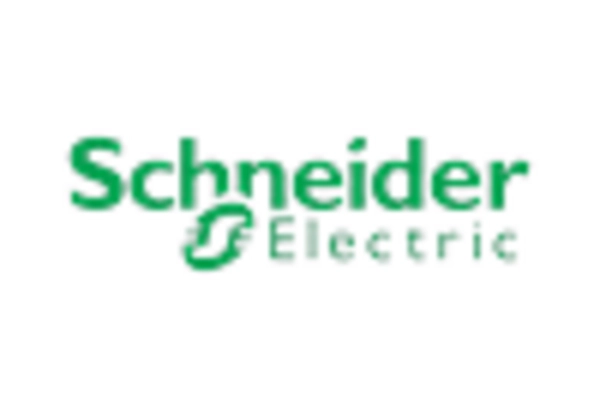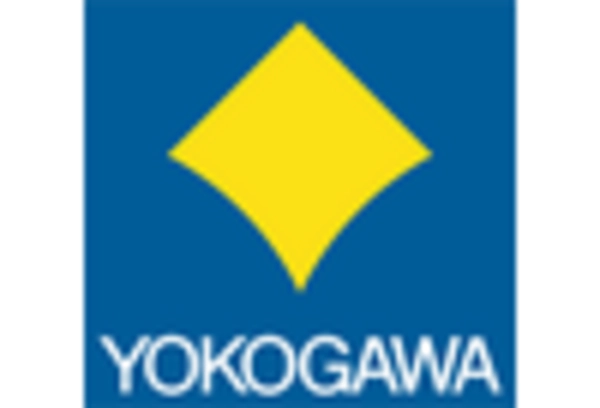Rising Demand for Precision Control
The Industrial Temperature Controller Market experiences a notable increase in demand for precision control across various sectors. Industries such as pharmaceuticals, food processing, and manufacturing require stringent temperature regulation to ensure product quality and safety. According to recent data, the market for temperature controllers is projected to grow at a compound annual growth rate of approximately 6.5% over the next five years. This growth is driven by the need for accurate temperature management in processes that are sensitive to thermal variations. As industries continue to prioritize quality assurance, the adoption of advanced temperature control systems becomes essential, thereby propelling the Industrial Temperature Controller Market forward.
Increasing Focus on Energy Efficiency
The increasing focus on energy efficiency is a significant driver of the Industrial Temperature Controller Market. Industries are under pressure to reduce energy consumption and minimize operational costs, leading to a heightened interest in energy-efficient temperature control solutions. Advanced controllers that optimize energy use not only contribute to cost savings but also align with sustainability goals. Market analysis indicates that energy-efficient temperature controllers are projected to capture a larger share of the market, with an expected growth rate of 5% over the next few years. As companies strive to enhance their environmental performance, the demand for innovative temperature control technologies is likely to escalate, further propelling the Industrial Temperature Controller Market.
Growth in Automation and Process Control
The growth in automation and process control systems is a key driver for the Industrial Temperature Controller Market. As industries increasingly adopt automation technologies to enhance operational efficiency, the demand for reliable temperature control solutions rises correspondingly. Automated systems require precise temperature regulation to maintain optimal conditions for production processes. Recent estimates suggest that the automation market is expected to expand at a rate of 8% annually, which directly influences the temperature controller market. This trend indicates a shift towards integrated solutions that combine temperature control with other process management functions, thereby fostering growth in the Industrial Temperature Controller Market.
Regulatory Compliance and Safety Standards
Regulatory compliance and safety standards significantly impact the Industrial Temperature Controller Market. Various sectors, including food and beverage, pharmaceuticals, and chemicals, are subject to stringent regulations that mandate precise temperature control to ensure product safety and quality. Compliance with these regulations often necessitates the implementation of advanced temperature control systems, which can lead to increased market demand. For instance, the FDA and other regulatory bodies enforce guidelines that require accurate temperature monitoring in storage and transportation. As industries strive to meet these standards, the Industrial Temperature Controller Market is likely to see sustained growth, driven by the need for reliable temperature management solutions.
Technological Advancements in Control Systems
Technological advancements play a pivotal role in shaping the Industrial Temperature Controller Market. Innovations such as IoT-enabled controllers and advanced algorithms enhance the efficiency and accuracy of temperature management. These technologies allow for real-time monitoring and data analytics, which are increasingly vital in sectors like chemical processing and HVAC systems. The integration of smart technologies is expected to contribute to a market growth rate of around 7% annually. As industries seek to optimize their operations and reduce energy consumption, the demand for sophisticated temperature control solutions is likely to rise, further influencing the Industrial Temperature Controller Market.


